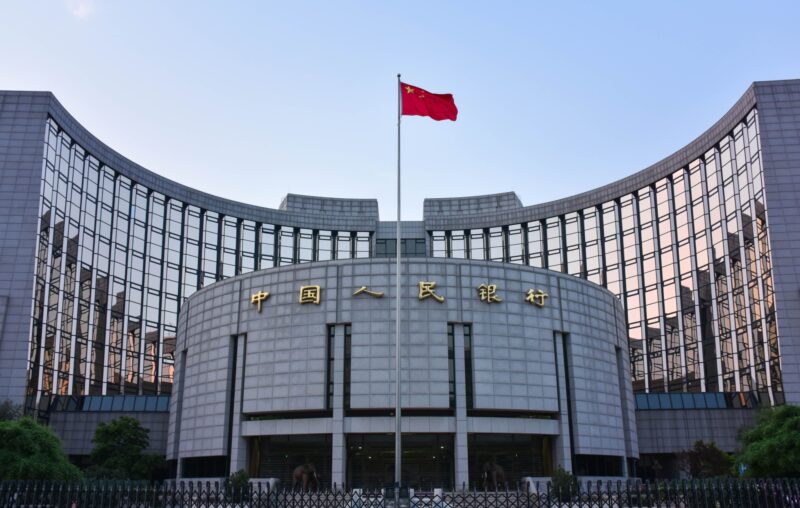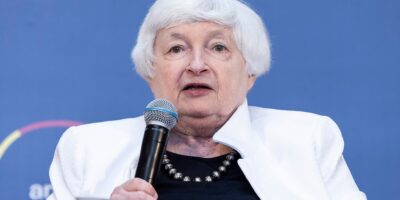China’s Economic Facade is Cracking

Not so long ago, commentators across the political spectrum were warning us that China’s economy was set to surpass America’s. The United States needed, one Senator claimed, “a 21st -century pro-American industrial policy,” to ward off this existential threat.
Such rhetoric was reminiscent of the late-1980s, when a slew of books appeared to warn Americans that, unless the United States adopted Japanese-like industrial policy (government intervention that shifts resources toward a particular sector or industry), it was doomed to be economically dwarfed by a country which America had militarily crushed four decades earlier.
Yet in 1990, Japan’s economy began entering its “Lost Decade” of stagnation. While that owed much to seriously flawed monetary policy, it also resulted from extensive government interventions into the Japanese economy via industrial policy: a point conceded by no less than Japan’s finance ministry in 2002.
Similar patterns may be manifesting themselves in China today. The shine is definitely off China’s economy, and many of Beijing’s economic dilemmas have resulted from the Communist regime’s dirigiste policies.
The biggest time-bomb confronting Beijing is its self-inflicted demographic disaster. Thanks to the one-child policy pursued between 1980 and 2016, China now faces all the complications associated with an upside-down demographic pyramid, in which an increasingly elderly population is supported by a shrinking pool of younger people.
That means ever-accelerating spending on pensions, welfare, and healthcare which will steadily crowd out investment in things like research and development, infrastructure, and defense. No wonder Beijing is now urging families to have three children. The trouble is that once demographic patterns are set in place, they are hard to shift. Consequently, as the foreign policy scholar Ryan Hass notes, China is now “at risk of growing old before it grows rich.”
Dismal demographics isn’t the only challenge with which China must grapple. The country is reaping the whirlwind of conscious decisions on Beijing’s part over the past 15 years to embrace more state-centric economic policies.
Take, for instance, China’s much touted Belt-and-Road Initiative (BRI). Since 2013, Beijing has sought to systematically promote and invest in infrastructure projects around the world, particularly in countries China considers geopolitically significant.
From its beginning, however, BRI has been characterized by runaway costs: so much so that, as early as 2015, state-run Chinese banks started reducing their exposure to BRI while Chinese commercial banks began trying to avoid it altogether. There is also evidence that BRI has long been marred by corruption on the part of those Chinese officials responsible for directing it.
Such problems, however, are to be expected when the government plays a heavy-handed role in directing investment — a process which steadily accelerated in China after Xi Jinping came to power in 2012. This has produced widespread misallocations of capital across the economy as a result of state-controlled banks lending to inefficient and zombie state enterprises.
Chinese state officials have even acknowledged that Beijing wasted at least $6 trillion on unsuccessful investments between 2009 and 2014. That makes it unsurprising that the IMF’s 2021 Article IV Consultation report on China concluded that Chinese state-owned businesses were, on average, only eighty percent as productive as private companies. This, the IMF report stated, had played a significant part in China’s ongoing productivity decline since the late-2000s.
A related problem is China’s aggressive use of industrial policy, especially since the early-2010s, in the form of subsidies, direct state investments, and cheap loans. The goal has been to try to bolster growth in sectors like advanced manufacturing, technology, the service sector, infrastructure, and agriculture.
Naturally if you throw enough money at any given economic sector, you will get some results. But Scott Lincicome and Huan Zhu’s extensive analysis of industrial policy in China shows massive failures in areas like semiconductors, 3G mobile technologies, domestic aircraft, and automotive manufacturing. The same policies have also contributed to growing corruption in many economic sectors, including China’s highly subsidized R&D sector.
These and other trends are making foreign investors nervous. This brings us to yet another problem facing China’s economic policymakers.
Inbound foreign direct investment in China has been falling now for two straight years. It is now at its lowest level since 1993. This development reflects a complex relationship, from trade tensions to unease about Beijing’s intentions vis-à-vis Taiwan.
Decreasing confidence among foreign business leaders about China’s future economic prospects also underlies this foreign investment downturn. The European Union Chamber of Commerce in China’s 2023 Business Confidence Survey, for instance, reported “a significant deterioration of business sentiment.” More specifically, “64 percent of respondents reported that doing business in China became more difficult in the past year, the highest on record;” “11 percent of respondents have shifted existing investments out of China;” “8 percent have taken the decision to move future investments previously planned for China elsewhere;” and “one in ten report they have already shifted, or plan to shift, their Asia headquarters (HQ) or business unit HQ out of Mainland China.”
“Uncertainties in China’s policy environment,” according to the Survey, were central to this deteriorating confidence. Foreign businesses are anxious about growing ambiguity concerning what Beijing will allow foreign businesses to do in China. This uncertainty has surely been exacerbated by the fact that China’s National Bureau of Statistics is becoming progressively more selective about what economic data it releases, and regularly delays the release of other relevant data. In August 2023, China simply stopped releasing information about its youth unemployment rate.
Do these trends indicate that China is about to lapse into Japanese-style 1990s stagnation? It is far too early to tell. They do, however, indicate that American policymakers — whether their focus is national security or trade — should recalibrate their approach to Beijing and avoid getting locked into a narrative which assumes that China is an unstoppable economic colossus. Put simply, the evidence suggests that it is not.









